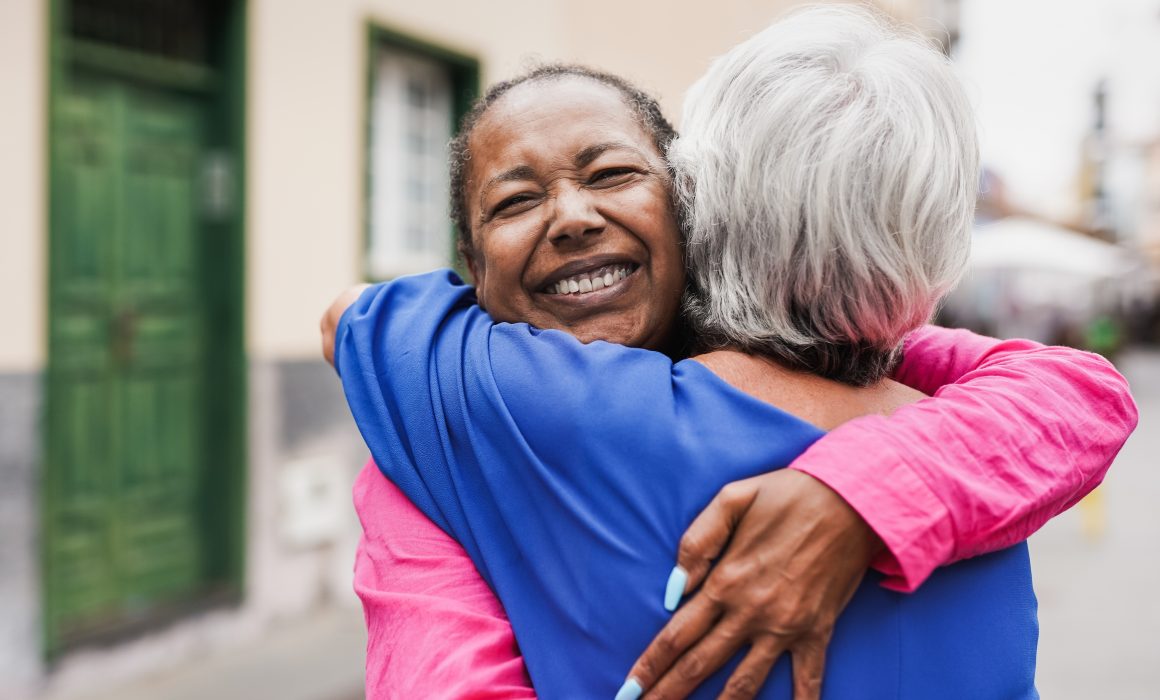How Older Adults Can Deal with The Loss of a Loved One
As we get older, losing loved ones is a sad reality that we all must deal with. This can be particularly difficult for older adults, as these relationships have been fostered over many years, growing into deep, longstanding connections. By dealing with loss in a healthy way, you can grieve while maintaining overall physical and mental well-being.
1. Stay Connected with Others
When coping with losing a loved one, staying connected with your social circle is important. Whether with family or friends, communicating with others will help you feel connected and provides opportunities to heal by sharing memories with a compassionate community.
Isolating yourself can make grief worse, so it’s important to find ways to speak about your feelings with others. If talking with friends or family isn’t an option, consider some of the suggestions below.
2. Consider Grief Counseling or Therapy
Grief counseling or therapy after experiencing a loss can provide individuals of all ages with a safe space to openly express and explore the complex emotions they may be experiencing. A therapist can help older adults dealing with loss understand and move through the natural stages of grief. They can also provide coping techniques such as journaling, meditation, and ways to honor the deceased.
3. Engage in Meaningful Activities
Dealing with the loss of a loved one can take time; when the mourner feels comfortable returning to their regular daily routine, finding meaningful activities or volunteer opportunities can work wonders. Offering your time and skills to help others is a way to channel grief and negative emotions into something positive. You can also combat feelings of isolation by connecting with others who share common goals or values.
4. Practice Self-care
While dealing with the loss of a loved one can be highly challenging, it is essential not to lose one’s sense of self. Self-care allows you to take time for yourself while still exploring the complex set of emotions associated with the loss of a loved one. Be kind and patient with yourself. Be sure to maintain proper nutrition and get enough sleep so your body can heal. Look for joy in your favorite hobbies; music, reading, and art can be therapeutic.
5. Express Emotions Through Creative Outlets
When dealing with a significant loss, it can be challenging for older adults to express their emotions in words. Creative outlets such as painting, journaling, or poetry can help you express feelings authentically, allowing you to cope, mourn, and grieve in a more productive way.
6. Honor a Loved One’s Memory
Finding a way to honor your loved one can help ease the grieving process. By celebrating the deceased person’s impact on your life and finding comfort with others through shared memories, you can help the healing process while accepting the loss. Holding a celebration of life ceremony to share stories is a beautiful way to honor a loved one. You can also create a living memorial for the person by planting a tree or garden in their honor.
7. Join a Support Group
Grief support groups can help those dealing with loss in many ways, including helping older adults to feel less alone, all while learning new coping skills. By speaking with others who have been through a similar loss, you can access different insights and points of view to help you process your emotions. They can provide you with suggestions and advice on how to cope with your grief.
8. Reconnect with Nature
If you have recently experienced a loss, connecting with nature can provide space for reflection and peace. Activities such as nature walks and gardening help older adults process grief by reminding them of the natural cycle of life and allowing them to find beauty in the natural world. Nature activities also help you foster a connection with something larger than yourself, which can help put grief into perspective and support your emotional and mental well-being.
9. Explore Religious Support
If faith is important to you, religious support can be a powerful source of comfort during times of grief. Many older adults find solace in their spiritual practices through prayer, attending services, or speaking with a spiritual leader. Connecting with a faith community can offer emotional support and guidance, helping you navigate the loss with purpose and hope. Religious support can also provide a safe environment to honor the memory of your loved one and find peace in their passing.
10. Take It One Day at a Time
Grieving is a personal journey, and it’s essential to allow yourself the time you need to cope without pressure. Taking it one day at a time will enable you to process your emotions without overwhelming yourself. Remember, it’s okay to have both good and bad days. Acknowledging moments of joy and progress can help you find moments of light in times of darkness. Giving yourself this grace and patience is one of the most compassionate things you can do in coping with your loss.
As you move forward on your healing journey, The New Jewish Home is here to support you. Our Adult Day Care program offers a compassionate, engaging environment where older adults can find connection, care, and a sense of community. With meaningful activities and a dedicated team, we’re committed to helping you find comfort and companionship during life’s challenging moments. Discover how we can be a part of your or your loved one’s journey to well-being—contact us to learn more about our services today.

